Sankera: Unending Agony in Benue Community After Police Raid
Months after police raids devastated communities in Sankera, residents face ongoing struggles for survival while their pursuit of justice is thwarted at every turn.
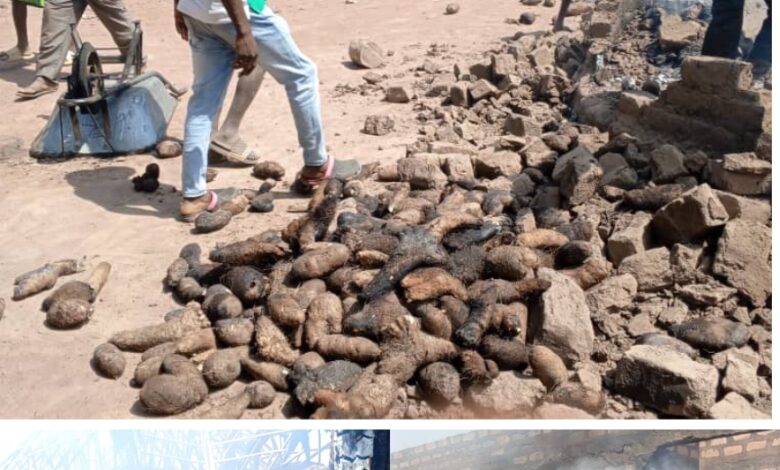
“They’re raiding the house! Armed security personnel… they’ve set it on fire!”
The panic in his uncle’s voice sent icy shivers down Zuamo Tornyor’s spine. On that fateful Monday morning in January 2024, the 300-level student at the University of Maiduguri was 181 kilometres away from his home in Tse Jikina, Sankera, Logo local government area (LGA) in Benue state, North-central Nigeria.
For three agonising minutes, Zuamo sat frozen in the car; his phone clenched tightly as he struggled to process the devastating news. His home was under siege, and his worst fears were confirmed when he called his father, Tornyor Orkile. “Our home is gone, son. It’s all burnt down,” his father said with a heavy sigh.
With no choice but to continue his journey back to school in the northeast, Zuamo felt a profound shift within him. The thought of his family left homeless, with everything they owned reduced to ashes, consumed his thoughts. Each time he opened a book to study, he envisioned the fear etched on his parents’ faces. Every call home reminded him of the devastation his family now lived through. Despite his physical distance from the nightmare in Sankera, the trauma weighed on him every day.
“I couldn’t concentrate on anything,” he recounted. “My mind replayed the moment over and over again. My books were always laid open but unread as the sound of my uncle’s panicked voice echoed in my memory. All I kept thinking was, ‘What if they come back? What if there’s nothing left at all?’”
On Jan. 12, at about 10 a.m., violence erupted in Tse Jikina. Over ten armed police officers, allegedly led by Akegh Ernest, the then Divisional Police Officer (DPO) of Logo, stormed the area in two Hilux vans, witnesses said. Their mission was to raid the home of Iorhom Orkile, a well-known herbal practitioner, whom Akegh’s team alleged was supplying charms and spiritual support to local terrorists operating in the region, according to a police officer who requested anonymity over fear of retribution.
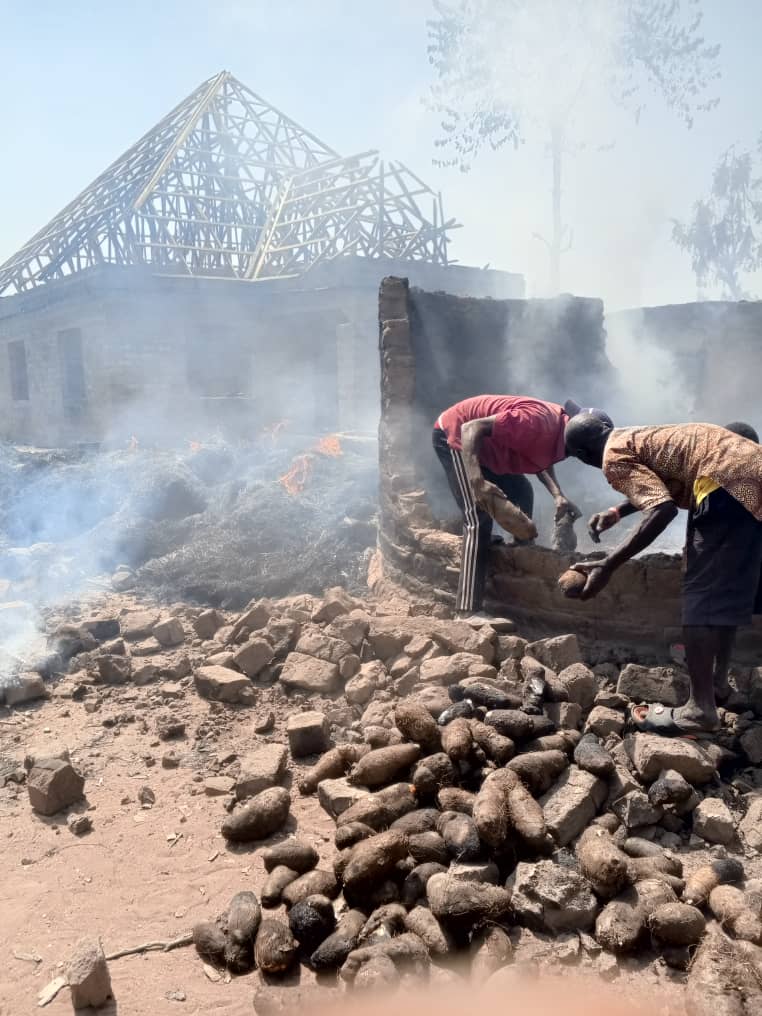
An eyewitness, Mbakaan Mbai, narrated the terrifying events to HumAngle. “I was just about to head to the farm when they came,” he said. “Before I knew it, I was surrounded. They pointed guns at me, demanding I show them Iorhom’s house, but I told them I didn’t know anyone. I was only a farming visitor in the community.” Despite his denial, the officers continued their search, combing through the compound.
Mbakaan’s brother, Terpase Mbai, who had been sleeping, was not so fortunate. Roused from his sleep, Terpase was violently yanked from his bed and subjected to brutal beatings until he complied.
“I heard a knock on my door, but it wasn’t an ordinary knock. The moment I opened the door, a police officer hit me with a rifle on my head,” Terpase recounted. “I started bleeding immediately, but they didn’t stop. They kept beating me and demanded I show them Iorhom Orkile’s house. They told me they would kill me if I didn’t. I pointed to the house, and they forced me to the ground, making me lie face down in the dirt.”
Terpase’s ordeal was far from over. Following orders from Akegh Ernest, the officers searched every corner of the home, allegedly going beyond intimidation to theft. “They took our clothes, loaded their vans with yams, and any money they found, they pocketed. After that, they set the houses on fire.”
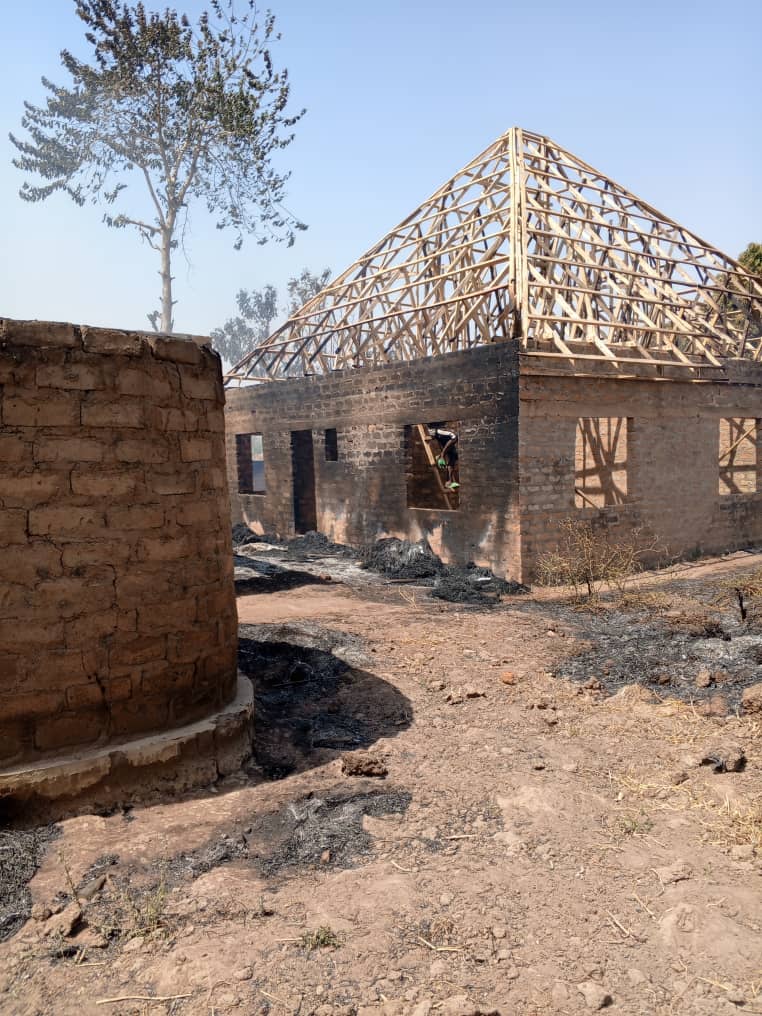
Another victim of the raid, Mbaihangeve Verior, a 38-year-old housewife, said, “When they found me, they ordered me to sit on the ground. I was terrified. I began to cry, but they threatened to kill me if I didn’t stop. One of them came close and touched me inappropriately. I tried to push his hand away, and he cursed at me, calling names I’ll never forget.”
The scene in Tse Jikina that day was one of sheer terror. Men found in the community were beaten and tortured without mercy, while women were humiliated and molested. Terpase spent over a week in the hospital recovering from his injuries, and the psychological scars run much deeper for everyone in the community.
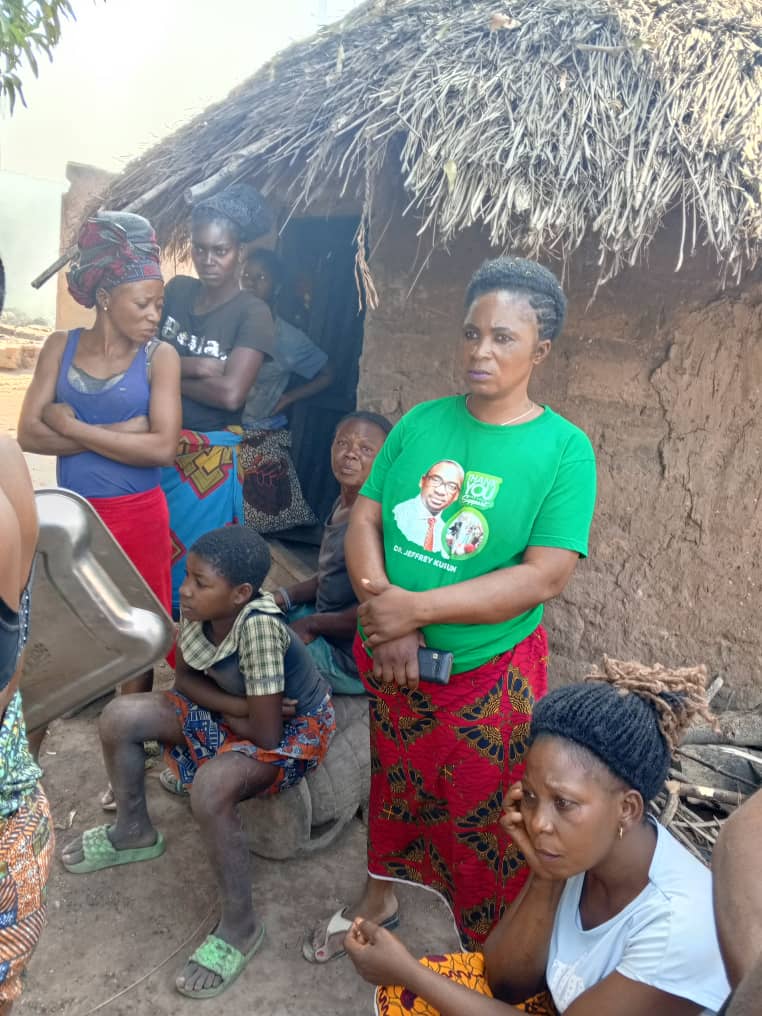
Iorhom, a member of the National Association of Nigerian Traditional Herbal Practitioners, has denied the allegations. He told HumAngle he had never met any terrorists, let alone offered them charms or protection.
“It baffles me that in a case like this, there was no thorough investigation or proper intelligence gathering before they stormed my home,” Iorhom said. “How can armed security personnel act with such brutality based on nothing more than an accusation? Where was the due process? Shouldn’t there have been an inquiry or some form of evidence? Instead, they just arrived, guns blazing, and left us in ruins.”
Akegh, now the Operational Officer of Operation Zenda, a local joint task force in the state, declined to comment on the raid, citing professional ethics. “I am a policeman, and my job does not allow me to grant interviews on police actions or inactions,” he responded via text message on Oct. 15.
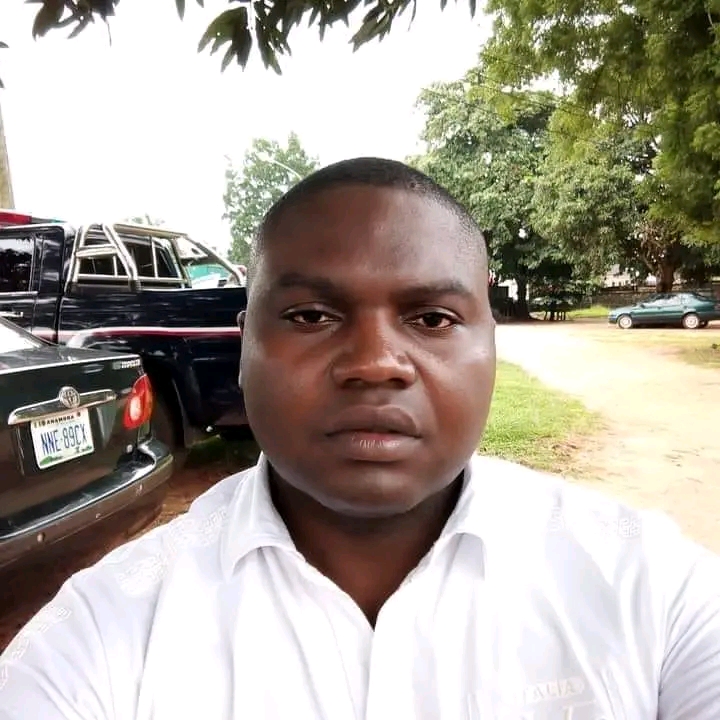
Ali Moses, the current DPO of Logo, also refused to comment. Both officers directed inquiries to Anene Catherine, the Benue State Police Public Relations Officer (PPRO), who did not respond to multiple calls from HumAngle. When eventually reached via texts, the PPRO stated that no case of this nature had been reported.
The trauma of the raid has not only shattered Iorhom’s life but has also plunged his entire family and the rest of the community into a state of fear. “We live in constant fear. I can hardly sleep at night,” he said. “This incident has destroyed everything we had, not just physically, but mentally as well.”
Returning to ruins
Six months after the raids, Zuamo Tornyor returned home for the holidays to find that the attack on his family house had not only destroyed the walls that once sheltered them but had also shattered their lives. His five younger siblings, once full of hope for their education, had been forced to drop out of school.
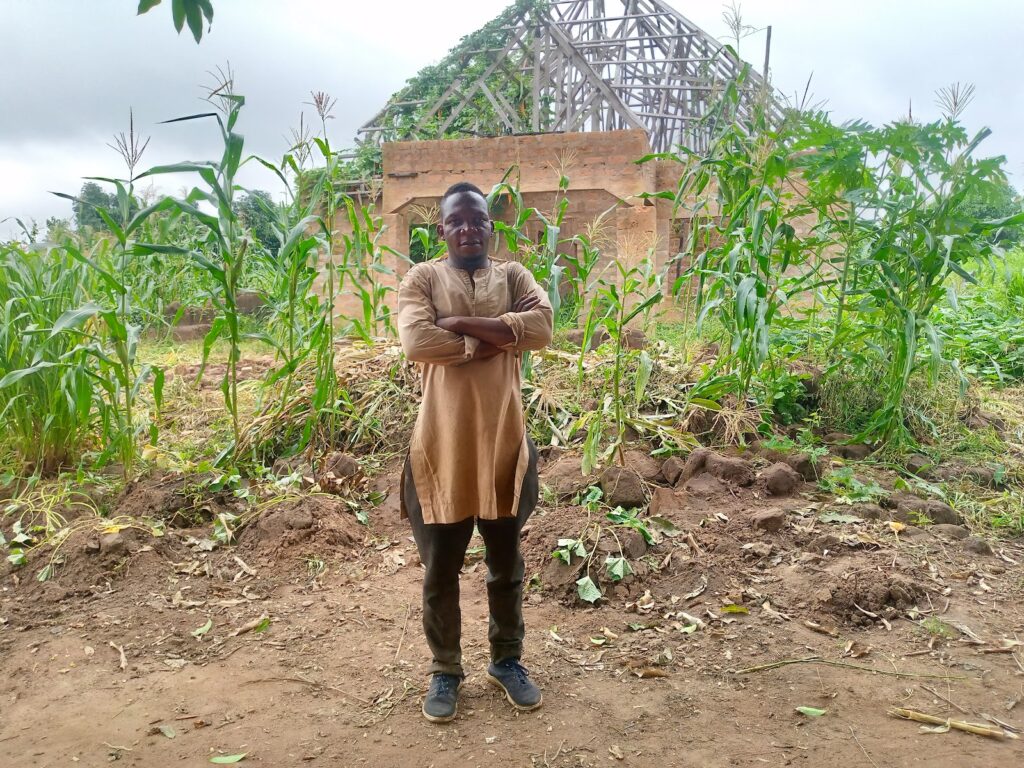
Once bright, their future was overshadowed by the daily struggle for survival. “They were all doing well in school,” Zuamo told HumAngle. “But after the raid, we couldn’t even afford their basic needs, let alone their school fees. Watching them at home, not learning, breaks my heart every day.”
Before the raid, Zuamo’s primary source of income came from farming. He had spent months cultivating and harvesting crops, only for the produce and their hard-earned yams to be reduced to ashes on a devastating day. “To find something to eat became difficult,” he said. “Everything we worked for all year was gone in just a few hours. It felt like we had been thrown into a deep pit, and now every day is about trying to climb out.”
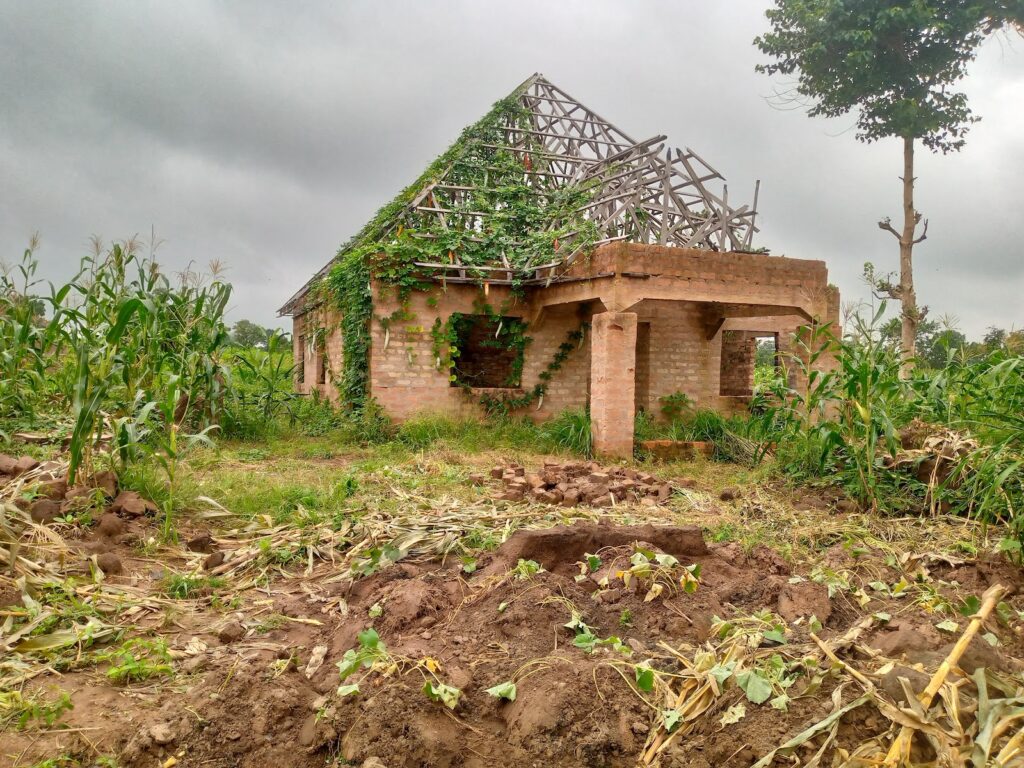
In August 2024, when HumAngle visited Zuamo at his Tse Jikina residence, he was still at home despite schools having resumed two weeks earlier. His absence from class wasn’t due to a lack of motivation but rather his inability to afford the transport fare back to Maiduguri.
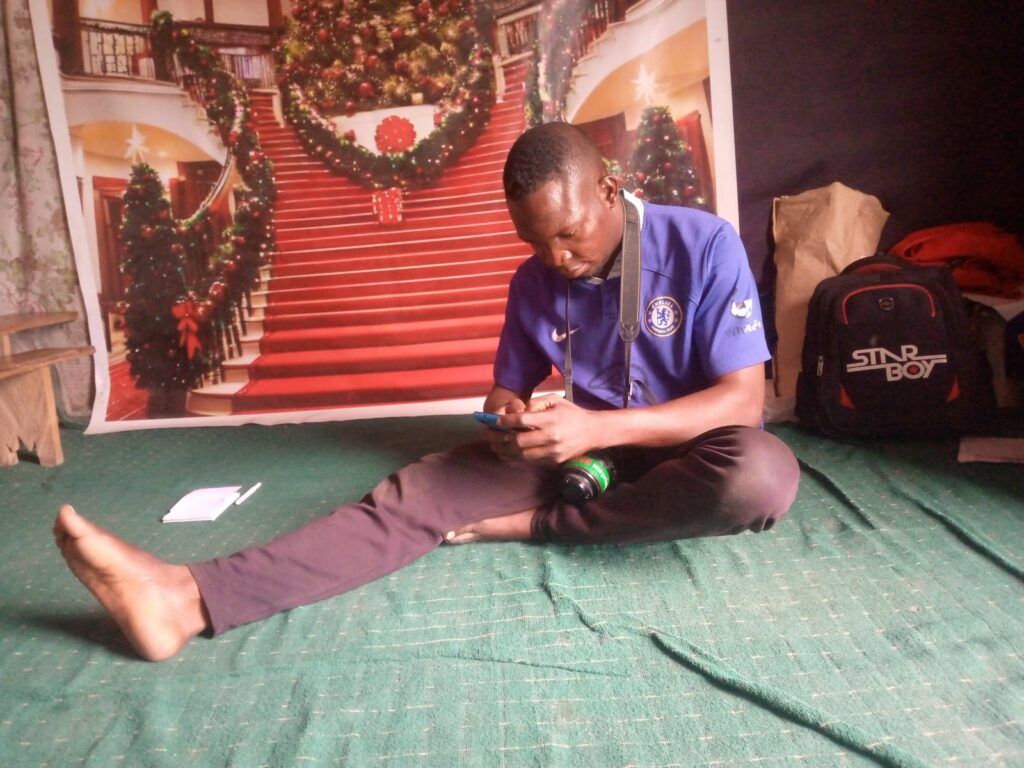
Despite the trauma of losing his home and the uncertainty that now shadows his family, Zuamo remains hopeful. He dreams of graduating and giving back to his community—becoming the person who will one day help his people rebuild what was taken from them. “If I give up now, everything my family has gone through will be for nothing. I owe it to them and to myself to see this through. I want to be able to stand up for my community,” he said. “We’ve suffered too much. If I can make it through school and become something, maybe I can help change that. Maybe I can help others in the same situation as me.”
Sankera: Ghost of itself?
Once a vibrant agricultural hub, Tse Jikina and much of Sankera have been devastated by fire, insecurity, poverty, and despair. Sankera, comprising the Katsina-Ala, Ukum, and Logo local government areas, is now a shadow of its former self. The residents now live in fear, as daily kidnappings, killings, and violence make normal life impossible.
Before the region descended into chaos, Terwase Akwaza, also known as Gana, a notorious criminal leader, controlled it. Gana’s death at the hands of the military on Sept. 8, 2020, marked the start of the community’s collapse. His killing by the Nigerian Army sparked a fresh trove of armed violence. Seeking revenge, Gana’s boys unleashed terror on the land following the emergence of new criminal masterminds. They raised armies and began another reign of terror in Sankera and other parts of the state.
These are the groups for which Iorhom was accused of providing charms.
These gangs have continued to relentlessly attack communities, leaving blood and anguish in their wake. Living in scattered, often isolated settlements, the residents of Sankera have been subjected to taxes imposed by the terrorists. Depending on the size of the community, households have been forced to pay cumulative amounts ranging from ₦200,000 and above, culminating in upto ₦50 million over time, just to be allowed to live in their homes without further attacks. It is a community suffocated under lawlessness, with no clear end in sight.
While the full extent of the human toll remains challenging to comprehend, the Benue State Emergency Management Agency (SEMA) estimates that between 2010 and 2022, insecurity claimed 28,997 lives in the state. This figure highlights a deepening crisis in Sankera, which worsens daily. SEMA, responsible for responding to emergencies and providing relief for the internally displaced, is overwhelmed by the sheer number of people affected by ongoing violence.
Despite the deployment of soldiers and police under the “Operation Zenda JTF” initiative, terrorists continue to overrun communities in Sankera. Locals told HumAngle that armed police officers patrolling the highway to restore order often extort the villagers and allegedly operate without clear intelligence.
“On my way to Ugba, Logo LGA, I saw armed police personnel stopping motorcyclists at the checkpoint, taking money from each. When it was my turn, the officer started speaking to me, but I couldn’t respond immediately—I needed to watch his lips to understand. I lost my hearing capability when I was sick some years ago. Before I could explain, he slapped me across the face, pushing me back, even as I tried to signal that I couldn’t hear him. I was completely helpless,” Ubur Apever, a resident and pastor, told HumAngle about his encounter with the armed police officers patrolling the highway in Sankera.
Counting losses, living in fear
When HumAngle went around Tse Jikina in August, we counted at least 25 homes standing in blackened ruins—remnants of what used to be family dwellings. Walking through the charred remains, it became clear how much the community had lost. Residents estimated that over ₦150 million valuables were destroyed in the blaze. But more than the loss of property was the palpable fear in community members.
As soon as the reporter arrived, many locals fled at the sight of a stranger, vanishing into the surrounding bushes. Those who didn’t run kept their distance, warily watching from afar. The silence was unsettling. It spoke to the trauma they had experienced and the ongoing terror they lived with every day. The fear of another attack by security forces hung over the community like a dark cloud.
“The security personnel came after the harvest when we had stored all our crops and yams in the house for the year. They burned it all. Now, my children’s education is gone; all we eat is carbohydrates. It’s hard, very hard,” said a middle-aged housewife who spoke anonymously, shedding tears.
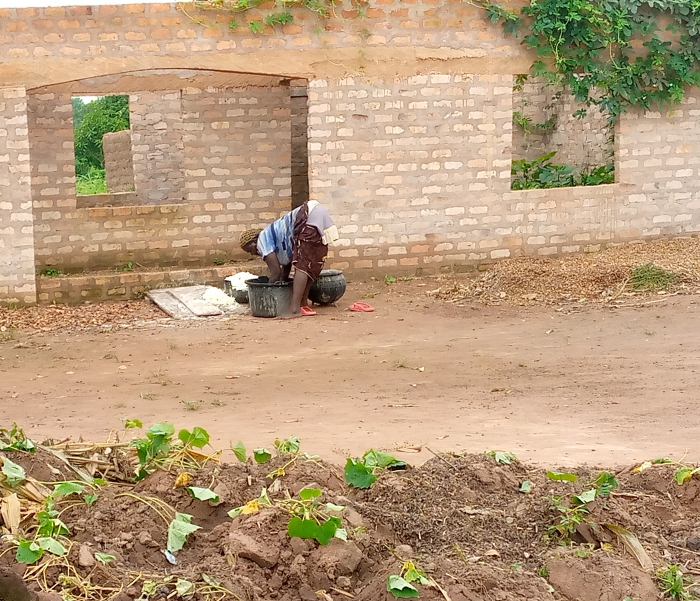
A fight for justice blocked by political interests
After the raids, the community sought justice by taking the security operatives to court. But what initially seemed like a hopeful path soon became a mire of political interference, leaving Tornyor Orkile, the head of Tse Jikina, deeply disillusioned.
“I took the case to court in Makurdi [the Benue state capital] believing in justice,” said Orkile. “But it didn’t take long before things began to unravel. The judge who was handling the case was suddenly transferred without any explanation. Then, Akegh Ernest, the DPO who led the raid, was also transferred. It felt like a deliberate attempt to sweep everything under the rug. The case was eventually struck out, and I knew then that politicians were involved.”
Orkile suspects his lack of influence contributed to the case’s dismissal. “I don’t have the money or the power to fight against those with deep political connections,” he said. “It’s heartbreaking to think that justice isn’t for the poor in Nigeria. Where does someone like me go when the system fails? Where is justice for people who have no money and no voice? It makes you wonder if there’s any hope for us at all.”
The raid’s aftermath has devastated his community, with homes and farms destroyed. Yet, for Orkile, the material losses are just one part of the toll. His pursuit of justice has led to threats against his life, leaving him fearful and uncertain about taking the fight any further.
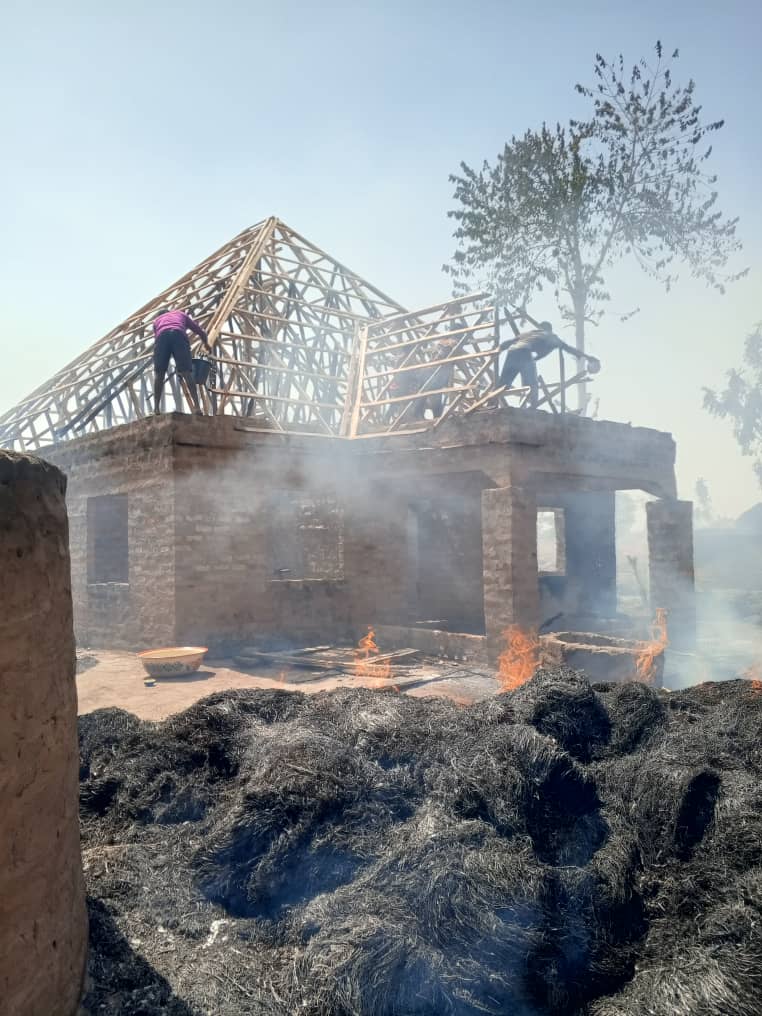
“I felt threatened. I don’t sleep peacefully anymore—if I keep pursuing this, my life could be in danger,” he said quietly, his voice barely above a whisper.
Despite the fear, Tornyor’s heart still yearns for accountability. “I want justice—but at what cost? Is it worth risking my life or my family’s safety? It feels like a cruel game where the powerful always win, leaving the rest of us to suffer in silence.”
“Unconstitutional and criminal”
Activists and civil society organisations have condemned the attacks. “There is no justification for these raids, nor for the excessive use of force during the operation,” said Sesugh Akume, a public interest litigant. “No individual has the right to burn down other people’s homes. It is outright criminal. The alleged offenders should have been properly investigated and apprehended.”
Akume lamented that the judiciary, which is meant to regulate society, has become a major obstacle to justice. “In many cases, the courts focus on technicalities rather than the substance of a case. Unfortunately, the judiciary often sides with the powerful, leaving the less privileged to seek justice unlawfully. This is one of the factors contributing to the rise in criminality in our society,” he alleged.
He urged the affected communities in Sankera to seek legal redress and called on the National Human Rights Commission and the judiciary to hold the police accountable for their unlawful actions.
This is not the first time security forces have attacked civilians in Sankera. In 2001, over 200 residents of Zaki Biam were killed by Nigerian soldiers in a revenge attack following the alleged killing of 19 officers by local militias. This massacre drew widespread condemnation.
The way out
As communities continue to grapple with the aftermath of the raids, bandit attacks persist. However, local organisations and religious and traditional leaders are working to mitigate the situation.
The International Organisation for Peace and Social Justice (PSJ) is one such organisation that provides material and legal aid to affected individuals while striving for lasting solutions.
Iortyom Moses, the PSJ Benue State Coordinator, stated, “Through our collaboration with the Catholic Diocese of Kastina-Ala, other religious leaders and traditional rulers, we’ve encouraged many bandits to lay down their weapons.”
He emphasised that while the “stick” approach by security personnel has only led to more chaos, the “carrot” approach—focused on dialogue and reconciliation—has fostered relative peace in the region.
“For lasting peace, we need to address the root causes of the conflict,” Iortyom stressed, citing unemployment, illiteracy, and injustice.
This report was produced with support from the HumAngle Foundation.
Zuamo Tornyor, a student from North-central Nigeria, faced immense trauma when his family home was raided and destroyed by police under allegations against a relative accused of aiding terrorists. The raid, marked by violence and theft, left the community in fear, and Zuamo's family struggled with the aftermath, forcing his siblings out of school due to financial hardships.
Despite these challenges, Zuamo remains determined to rebuild and support his community by pursuing his education.
The region of Sankera, once thriving, was thrust into chaos after prominent criminal leader Gana's death, leading to increased lawlessness and insecurity. Security forces have failed to effectively curb the violence, with communities subjected to exploitation and fear. Efforts by local organizations and leaders aim to restore peace through dialogue, addressing root issues such as unemployment and injustice for long-term solutions.
Support Our Journalism
There are millions of ordinary people affected by conflict in Africa whose stories are missing in the mainstream media. HumAngle is determined to tell those challenging and under-reported stories, hoping that the people impacted by these conflicts will find the safety and security they deserve.
To ensure that we continue to provide public service coverage, we have a small favour to ask you. We want you to be part of our journalistic endeavour by contributing a token to us.
Your donation will further promote a robust, free, and independent media.
Donate HereStay Closer To The Stories That Matter




